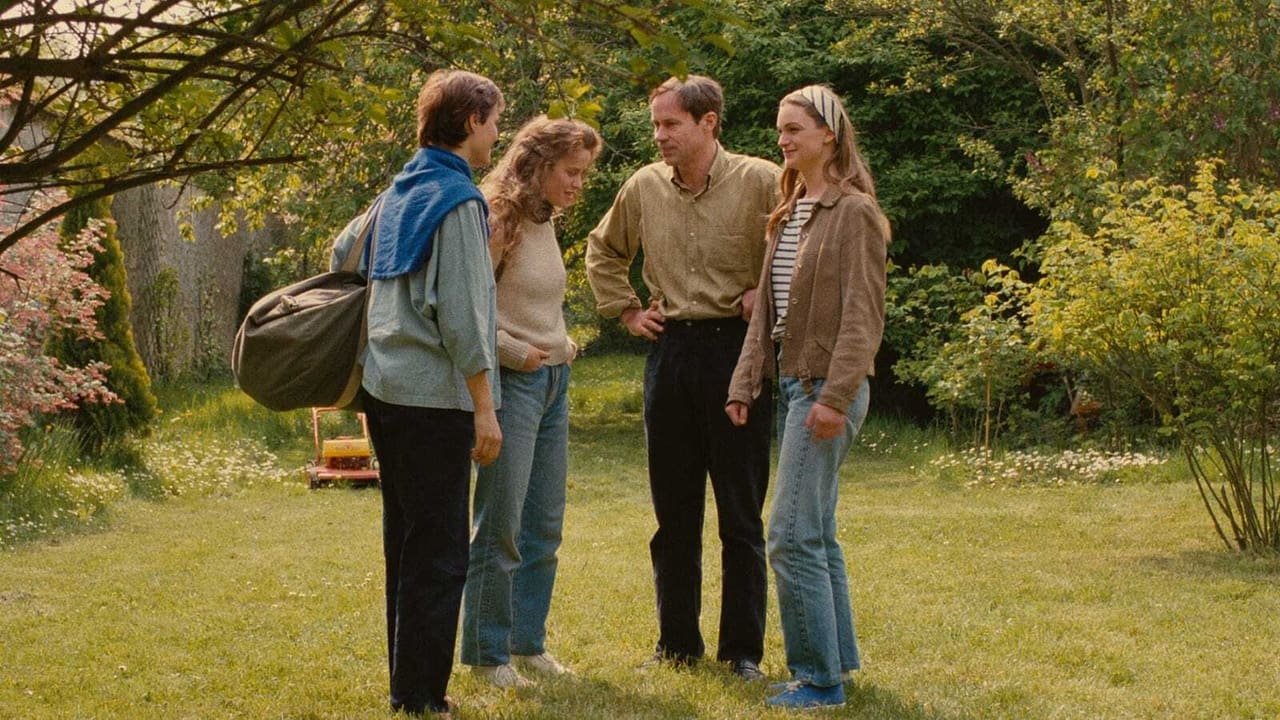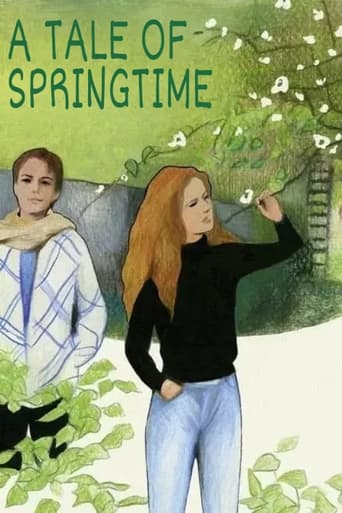RipDelight
This is a tender, generous movie that likes its characters and presents them as real people, full of flaws and strengths.
Dynamixor
The performances transcend the film's tropes, grounding it in characters that feel more complete than this subgenre often produces.
SeeQuant
Blending excellent reporting and strong storytelling, this is a disturbing film truly stranger than fiction
KnotStronger
This is a must-see and one of the best documentaries - and films - of this year.
The_late_Buddy_Ryan
We first see our protagonist, Jeanne, outside a modernist high school building whose name—"Lycée Jacques Brel"—suggests an institution devoted to the study of love and longing as well as the realms of higher thought. That's what Rohmer has in mind, of course. In an extended prologue, we learn that Jeanne is at loose ends; her fiancé's out of town, she's creeped out by his messy apartment when he's not there and she's lent her own place to a country cousin who needs to stay an extra week. Natacha, a music student she meets at a party, extends an invitation. No surprise that these attractive young women talk fluently and at length about their family histories, their habits and opinions; later on, when Natacha's father, Igor, and his younger girlfriend, Eve, join in, the talk becomes even more rarefied—a casual question about Jeanne's teaching methods turns into a brief refresher course on Kant's transcendental idealism. And as usual, this talk has an undertone of intrigue and seduction; Natacha has scouted her new friend as a possible replacement for Eve, whom she despises. It takes some maneuvering and a strategic tantrum to get Igor and Jeanne alone together in his secluded country house, but there's not much at stake emotionally for either of them and not much of a payoff for them or for us. Despite a promising start, I felt that the sly, noncommittal ending makes this one of Rohmer's less satisfying (as opposed to edifying) films. Apart from the better known titles with women's names in them (Claire, Maud, Chloë (aka "Love in the Afternoon"), Pauline), I'd also rate "The Aviator's Wife," "The Good Marriage" and "Boyfriends and Girlfriends" as well as the other seasonal tales ahead of this one.
LeonardOsborneKael
Ever see a film so rich in character and humanity that made you want to hug not only the projectionist -- but the projector that brought it to life for you? Well, this is one of those. Not a casual word is wasted as these characters so adeptly sneak up on you. In no time you are carried into their complex inner lives in much the same manner as you get to know new friends and neighbors. Rohmer's story and character design are masterful; the touches are sure-handed and rich. There are moments along the way that make you gasp with recognition. Subtle, inner feelings you may have experienced about yourself and those close to you that you never dreamed anyone else had touched. Unlike so many movies, there's a wonderful awareness that, in life, no one is really in control of even the minutest events of the day. Life happens and continues to happen ... everyone plays their role from the inside, out and we all endure or celebrate the consequences. The subtle insight; the ring of truth; there is such finesse here; this one is unforgettable.
timmy_501
From the beginning of this film to the end Jeanne is constantly displaced. The first scene has her returning to her own apartment after a long absence to find the cousin she was allowing to borrow the place is still there in spite of her agreement to leave a day or two previously. Although she desperately wants to return to the order of her own place she pretends that she was just stopping by to pick something up on her way back to the place she shares with her out of town boyfriend. However, she does not feel comfortable returning to this disordered place so to avoid it as long as possible she goes to the party of a former acquaintance. Here she meets Natasha and the plot gets started.Natasha lives alone in a big apartment and she invites Jeanne to stay with her a few days. Jeanne mostly feels out of place here as well but her two day stay stretches into something like ten before she is finally able to return home. During this time she grows increasingly agitated which causes her to act distrustful and paranoid. Unfortunately, her new friend Natasha is acting much the same way toward her father's current love interest and the combination of a negative atmosphere and her own paranoia put her in a rather unpleasant situation.In spite of the general tension of the plot, A Tale of Springtime ends on a very upbeat note that suggests most of the distrust the characters felt toward one another was unfounded. Indeed, the blossoming of new relationships and the general happiness of the characters make Spring a fitting setting for the film. Still, I couldn't help but feel that this wasn't one of Rohmer's strongest efforts: sure, the characters were just as natural as ever and the dialog was even more chock full of interesting ideas than usual but the cinematography wasn't all that special. All things considered, I would say this was quite good but nowhere near the best Rohmer has offered.
George Parker
...only having to read it. This installment of Eric Rohmer's tribute to the seasons is good but boring (assuming you don't consider those two qualities mutually exclusive). "A Tale of Spring" is all a tedious, uneventful, all-dialogue flick about some very mundane, pedestrian goings-on in the lives of an 18 year old French girl, her father, her father's girl friend, and an adult female teacher. It's a long road to nowhere with a lot of subtitle reading for non-French speakers (I watched a cablecast version) and a movie only Roger Ebert (who charitably gave it 3.5 stars) and others with their heads into cinema could love. Not recommended for the general film-going public. (C)

